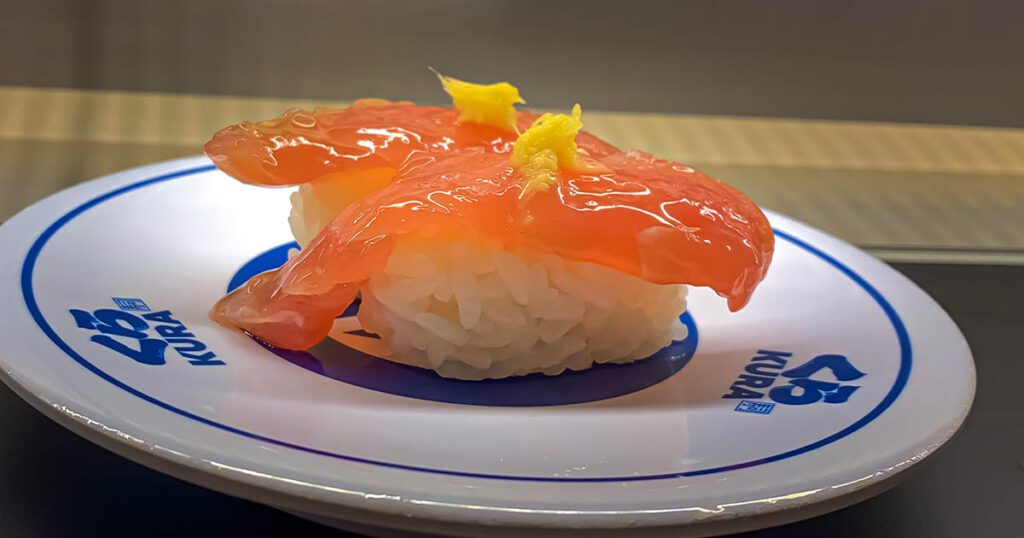Japanese Sushi is a popular dish made with vinegar-seasoned rice, seaweed, and various types of fresh seafood, vegetables, and other ingredients.
Here are some potential benefits of eating Japanese Sushi:
Table of Contents
1. Good source of nutrients:
Sushi is typically made with fresh, high-quality ingredients such as fish, seaweed, and vegetables, which are all good sources of nutrients. For example, fish is rich in protein and omega-3 fatty acids, while seaweed is high in vitamins as well as minerals such as iodine, calcium, and iron.
2. Low in calories:
Sushi is generally a low-calorie food, as it typically contains lean protein and vegetables without added fats or sugars. Japanese Sushi is a good option for people who keep track of their weight or trying to eat a balanced diet.
3. Lower heart disease:
Sushi contains omega-3 fatty acids, which may help reduce heart disease risk. Besides, Suchi also helps lower blood pressure, reduce inflammation, and improve cholesterol levels.
4. Support brain health:
Some studies suggest that the omega-3 fatty acids in fish may also have cognitive benefits, such as improving memory and reducing the risk of cognitive decline and dementia.
5. Improve gut health:
The vinegar used to season Japanese Sushi Rice may have probiotic properties, which can promote a healthy gut microbiome and improve digestive health.
It’s worth noting that the nutritional benefits of Sushi can vary depending on the specific ingredients and preparation methods used. Additionally, some types of Sushi may be higher in sodium or mercury, so it’s important to consume Sushi in moderation and choose high-quality ingredients from trusted sources.
It’s important to note here that the average life expectancy in Japan is higher than any other country in the world. The main factor of Japanese longevity is yet to be discovered. However, it’s clear that Japanese Sushi is one of the primary sources of long life in Japan as 99% of Japanese keep Miso Soup or Miso related food in their daily meals.
Additionally, the three main ingredients in Sushi are very useful for health benefits.
The three main ingredients in Sushi are:
- Sushi Rice – This short-grain rice is mixed with rice vinegar, salt, and sugar, which provides a slightly sweet and tangy flavor. The rice is an essential component of Sushi, as it holds the other ingredients together and provides a soft, sticky texture.
- Nori – This is a type of seaweed that is used to wrap sushi rice and fillings. It is often roasted and seasoned with salt to add a slightly salty and crunchy flavor to the Sushi.
- Raw Fish or Other Fillings – Sushi can be made with a variety of fillings, but raw fish is the most traditional and popular choice. Common types of fish used in Sushi include tuna, salmon, and mackerel, but other seafood and vegetables can also be used as fillings.
These three ingredients are the foundation of most types of Sushi, but there are many variations and styles of Sushi that use different combinations of ingredients and preparation methods.
